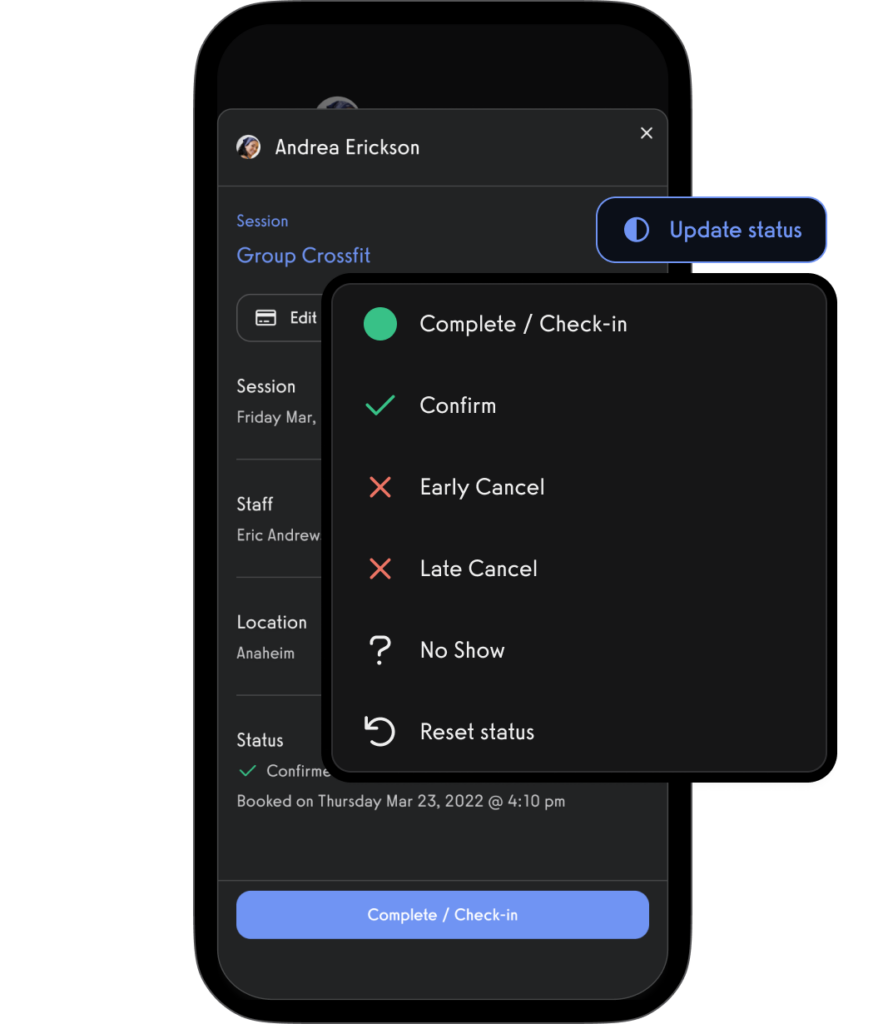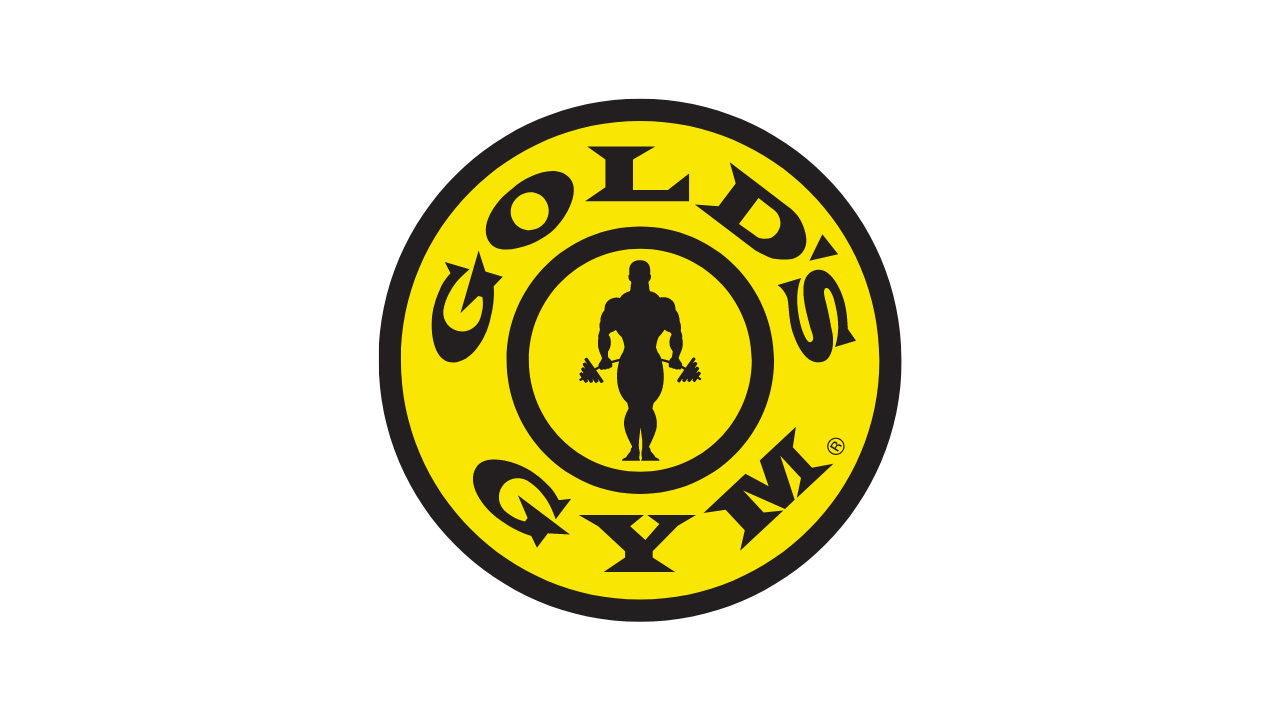Pros and Cons of Owning a Gym (10 Each)
Read these pros and cons of owning a gym before you decide to open a gym or start a fitness business.

Owning a gym can be a rewarding venture for those passionate about fitness and health. It offers the opportunity to inspire and shape the wellness journey of individuals while also navigating the challenges of business management.
Among the notable pros, gym ownership allows for fostering a community of health-conscious individuals and potentially reaping significant financial rewards. On the other hand, it also presents cons such as the need for substantial upfront investment and the challenges of maintaining a consistent client base (and dealing with common gym member complaints and all the things that drive gym owners crazy).

In navigating both the benefits and challenges of gym ownership, a robust gym management system like Exercise.com can be invaluable. It streamlines various aspects of gym management, from client scheduling to financial tracking, helping to mitigate some of the cons while enhancing the pros. Then see how Exercise.com can help you run your gym like a pro with the best gym management software.
Read the below pros and cons to starting a gym, and then learn how to increase gym revenue and profit with powerful software from Exercise.com. Finding the right software is key for running a successful gym. Learn the things you should know before opening a gym and then see why Exercise.com is the overall best gym management software, the best boutique fitness studio software, the best sports performance gym software, and more.

Pros of Owning a Gym
- Passion for Fitness and Health: Owning a gym allows you to turn your passion for fitness into a career, making work feel rewarding and fulfilling.
- Community Building: Gyms are hubs for community interaction, offering a space for like-minded individuals to connect, which can be immensely gratifying.
- Potential for Profitability: With a well-managed gym and a solid business model, there is significant potential for financial gain.
- Influence on Health and Wellness: As a gym owner, you have the opportunity to positively impact the health and wellness of your members.
- Autonomy in Business: Owning a gym offers the freedom to make decisions and implement your vision without external constraints.
- Diverse Revenue Streams: Beyond membership fees, there are multiple avenues for revenue, such as personal training, classes, merchandise, and online coaching.
- Technological Integration: Leveraging technology like Exercise.com can enhance operational efficiency, client engagement, and overall management.
- Brand Building and Marketing: Owning a gym allows you to build a unique brand and engage in creative marketing strategies.
- Professional Growth and Learning: The journey of gym ownership is filled with learning opportunities that foster personal and professional growth.
- Adaptability and Innovation: The fitness industry is dynamic, allowing for innovative approaches and adaptability in services and offerings.
Read More:
- How much do gym owners make?
- How to Create Multiple Gym Revenue Streams
- How to Increase Gym Revenue and Profit
Cons of Owning a Gym
- High Initial Investment: Starting a gym requires substantial capital for equipment, space rental or purchase, and initial setup costs.
- Operational Challenges: Managing day-to-day operations, including staffing, maintenance, and customer service, can be demanding.
- Market Competition: The fitness industry is highly competitive, requiring constant efforts to stand out.
- Economic Sensitivity: Gym memberships are often considered discretionary spending, making the business sensitive to economic fluctuations.
- Member Retention: Consistently attracting and retaining members is a continuous challenge in the gym business.
- Regulatory Compliance: Staying compliant with health and safety regulations and business licenses can be complex and time-consuming.
- Dependency on Location: Success can be heavily dependent on the gym’s location, which impacts visibility and accessibility.
- Technology Adaptation: Keeping up with technological advancements and integrating them effectively into the business model requires effort and resources.
- Work-Life Balance: As a gym owner, achieving a balance between personal life and the demands of running a business can be challenging.
- Risk of Burnout: The continuous pressure to maintain and grow the business can lead to burnout if not managed well.
Read More:
- How much does it cost to open a gym?
- How to Increase Gym Member Retention
- How to Choose a Gym Target Market
- Pros and Cons of Owning a Franchise Gym
- Pros and Cons of Owning a CrosFit Gym
- Pros and Cons of Being a Personal Trainer
Exercise.com, with its comprehensive gym management software, can help alleviate many of these cons. From simplifying operational tasks to providing innovative technological solutions, it aids gym owners in focusing more on the pros of their business. By managing bookings, member retention strategies, and providing robust reporting tools, Exercise.com supports gym owners in navigating the complexities of the fitness business landscape.
Here’s just some of what you can do on the Exercise.com platform:
Process payments for open gym, classes, and personal training.

Create gym landing pages easily.

Manage fitness challenges (Read More: 100+ Fitness Challenge Ideas)

Manage clients and gym members with ease.

Book appointments for parents and dependents with ease. (Read More: Best Gym Booking Software)

Gym check-in software that makes your life easy. (Read More: Best Gym Check-In Software)

Communicate with gym members, athletes, team members, personal training clients, class members, parents, and dependents via SMS, email, and in-app push notification.


Is Owning a Gym a Good Investment? Understanding the Pros and Cons
If you’re passionate about fitness and considering making it a business, you may be wondering: is opening a gym a good investment? Like any business venture, starting a gym business comes with challenges and rewards. Understanding the pros and cons of gym ownership can help you decide if it’s the right path for you.
Advantages of Owning a Gym
Owning a gym can be an exciting and profitable venture, offering the opportunity to build a strong fitness community while generating recurring revenue. However, it requires careful planning, financial investment, and a strategic approach to operations and member retention.
Turning Passion Into Profit
Owning a gym allows you to build a business around your love for fitness while positively impacting your community. Unlike many businesses, gyms offer recurring revenue through memberships, making it a sustainable model.
Growing Industry Demand
The fitness industry continues to expand as more people prioritize health. This steady demand can make owning a gym a good investment if executed correctly.
Multiple Revenue Streams
Beyond membership fees, successful gym owners generate revenue through personal training, group fitness classes, merchandise, supplements, and digital programs. This diversification makes gyms profitable when managed efficiently.
Community and Brand Building
Gyms thrive on creating a loyal community. By fostering engagement and offering personalized services, you can build a strong brand that leads to higher member retention and business growth.
Control Over Your Business
For entrepreneurs who prefer autonomy, is gym a good business as it allows you to control pricing, staffing, and marketing while shaping the gym’s culture and atmosphere.
Disadvantages of Gym Ownership
While owning a gym can be rewarding, there are also challenges that must be carefully considered before making the investment. From high startup costs to intense competition, understanding the disadvantages of gym ownership is key to long-term success.
High Startup Costs
One of the biggest barriers to entry is the cost of opening a gym. Expenses can range from $50,000 for a small studio to over $1,000,000 for a full-service facility. If you’re wondering, how much does it cost to start a gym? The answer depends on factors like location, equipment, and business model. You can learn more in this guide on the cost of opening a gym.
Ongoing Operational Expenses
The monthly cost of running a gym includes rent, utilities, staff wages, insurance, and software. Without proper financial planning, overhead costs can quickly eat into profits.
Competitive Market
With boutique studios and major fitness chains expanding, standing out in the crowded gym industry can be tough. Investing in top-tier services, marketing strategies, and gym marketing strategies can help give your business an edge.
Member Retention Challenges
While attracting members is crucial, retaining them is even more important. Poor customer experience, outdated equipment, or lack of engagement can lead to high churn rates, impacting profitability. To improve retention, consider implementing gym membership retention strategies.
Time-Intensive Management
Being a gym owner isn’t just about fitness—it requires strong business acumen. Managing staff, handling finances, and ensuring daily operations run smoothly can be overwhelming. Choosing a gym business plan that includes automation and streamlined management can make a significant difference.
Deciding if Gym Ownership is for You
Owning a gym can be a rewarding and profitable venture, but it also comes with significant challenges. Many aspiring gym owners ask, “Is a gym a good investment?” or “Is opening a gym a good idea?” The answer depends on proper planning, location, financial management, and the ability to attract and retain members. Are gyms profitable? They can be, but success depends on keeping expenses low, maintaining high gym membership retention, and offering unique services. The gym profit margin varies widely depending on factors like location, pricing structure, and operating costs. For those looking to invest in an existing facility, exploring a gym for sale or considering a gym franchise for sale may provide a more structured path to ownership.
One of the biggest concerns for new gym owners is the cost to open a gym. The average cost to open a gym varies widely, ranging from $50,000 for a small studio to over $500,000 for a full-service commercial gym. If you’re wondering “How much does it cost to buy a gym?”, prices fluctuate depending on the size, location, and existing member base. Commercial space for a gym also significantly impacts costs, with rent being one of the largest recurring expenses. For those considering franchising, are gym franchises profitable? Many well-known franchises, like Orangetheory and Anytime Fitness, can be profitable, but franchise fees and revenue-sharing agreements must be carefully analyzed. If you’re looking for gym business plan examples, Exercise.com provides essential tools to help structure finances, track expenses, and optimize profitability.
Another key question is “Does owning a gym make money?” and “How much do gym owners make a month?” Profits depend on membership numbers, personal training services, and additional revenue streams like supplements and merchandise. Understanding how many gym members per gym are needed to break even is essential when developing a financial plan. The best places to open a gym are high-traffic areas with a strong demand for fitness services. For those seeking investment guidance, Exercise.com provides comprehensive business management software that helps gym owners analyze financials, track gym business capital, and execute a SWOT analysis of a gym to identify strengths, weaknesses, opportunities, and threats.
While the disadvantage of gym ownership includes high startup costs, competition, and operational stress, the right tools can make opening my own gym a much smoother process. With Exercise.com, gym owners can streamline membership management, automate billing, schedule classes, and implement data-driven marketing strategies. Whether you’re starting from scratch, looking to buy a gym, or considering buying a gym franchise, Exercise.com provides the best platform to maximize revenue, enhance member retention, and ensure long-term success in the fitness industry.
How Much Does It Cost to Start a Gym?
If you’re asking, how much to open a gym? or what is the gym opening cost? here’s a general breakdown:
| Expense Category | Estimated Cost Range |
|---|---|
| Lease/Rent | $5,000 – $25,000/month |
| Equipment | $50,000 – $500,000 |
| Insurance | $1,000 – $6,000/year |
| Software | $100 – $500/month |
| Staffing | $30,000 – $100,000/year |
| Marketing | $5,000 – $30,000/year |
The total opening a gym cost can vary widely based on location, size, and business model. For a detailed breakdown, check out how much it costs to start a gym.
Is Buying a Gym a Good Investment?
Instead of starting from scratch, some entrepreneurs consider purchasing an existing business. If you’re looking for gyms for sale, it’s important to assess factors like location, financial performance, existing memberships, and lease agreements before making a decision. For guidance on purchasing a gym, check out this gym acquisition checklist.
Is Gym Business Profitable?
With proper planning, strategic marketing, and efficient management, is gym business profitable. On average, a gym owner salary ranges from $50,000 to $150,000 per year, depending on the size and success of the business. For insights on structuring a gym for financial success, explore this gym pricing strategy guide.
How Exercise.com Helps Gym Owners Succeed
Managing a gym efficiently requires the right tools. Exercise.com gym management software offers an all-in-one platform that helps streamline operations, automate payments, manage members, and offer digital services. Whether you’re starting a gym or scaling an existing one, Exercise.com makes running a gym more profitable and less stressful.
Is Owning a Gym Worth It?
While there are advantages and disadvantages of gym businesses, success ultimately depends on strategic planning, smart investments, and efficient management. If you’re serious about how to start a gym business, choosing the right location, investing in quality equipment, and using gym management software can set you up for success.
Ready to Start Your Gym Business?
If you’re ready to take the next step and want to ensure smooth operations from day one, Exercise.com gym management software is the best solution for running a gym. Schedule a demo today and discover how it can help you build, manage, and grow your gym business!

What are the disadvantages of owning a gym?
There are gym advantages and disadvantages when it comes to evaluating owning a gym pros and cons. Owning a gym can be challenging due to high initial investment costs, the need for ongoing maintenance and equipment updates, and intense competition in the fitness industry. Additionally, some of the disadvantages of gym ownership is that gym owners must constantly adapt to changing fitness trends and member expectations, which requires time, effort, and resources.
Read More: Common Gym Owner Problems and Solutions
Is owning a gym profitable?
Owning a gym can be profitable, but it often depends on factors like location, gym size, membership fees, and effective management. Profitability requires balancing operational costs with revenue generated from memberships, personal training, and other services.
Read More: How profitable is owning a gym?
What are advantages of being a gym owner?
Advantages of being a gym owner include the potential for a lucrative business, the opportunity to be your own boss, and the satisfaction of promoting health and fitness within the community. Additionally, gym owners often have the flexibility to innovate and adapt their business to niche markets.
What is the hardest part of owning a gym?
The hardest part of owning a gym is typically managing the financial aspects, such as controlling overhead costs, maintaining cash flow, and ensuring consistent member enrollment. Additionally, keeping up with the latest fitness trends and technologies to stay competitive can be challenging.
What do gym owners struggle with?
Gym owners often struggle with fluctuating membership numbers, high operating costs, staff management, and maintaining high-quality, up-to-date equipment. They also face challenges in marketing and retaining members in a competitive market.
Read More: What do gym owners struggle with?
What is the failure rate of gyms?
The failure rate of gyms varies, but like many small businesses, they can face significant challenges in the first few years. Factors influencing failure rates include location, competition, management effectiveness, and economic conditions.
Read More: Reasons Gyms Fail
Is a gym a good business to start?
Owning a gym comes with its own set of owning a gym pros and cons that potential entrepreneurs must consider. Among the gym advantages and disadvantages, the ability to inspire health and fitness in a community and tap into a growing market for wellness services stands out as a significant benefit. However, gym cons include high initial costs, operational challenges, and the need to navigate a competitive landscape. The question of “is opening a gym profitable” largely depends on strategic location choice, effective management, and the ability to adapt to market trends, such as the increasing demand for personalized fitness experiences.
Despite the potential for profit, the gym business is not without its challenges. High overhead costs, seasonal fluctuations in membership, and the challenge of member retention are notable disadvantages that can impact the bottom line. When weighing gym advantages and disadvantages, it’s crucial to have a clear business plan, understand your target market, and create a unique offering that differentiates your gym from competitors. With careful planning and a strong value proposition, owning a gym can indeed be a rewarding and profitable venture.
Is it hard owning a gym?
Owning a gym can be hard due to the competitive nature of the fitness industry, the need for continual investment in equipment and facilities, and the challenge of attracting and retaining members. However, with effective management and a strong business plan, these challenges can be overcome.
Read More: Things You Should Know Before Opening a Gym
How many members does a gym need to be successful?
The number of members a gym needs to be successful varies based on factors like gym size, location, and operating expenses. Generally, a successful gym should have enough members to consistently cover costs and generate a profit, which could range from a few hundred to several thousand members.
Read More: How many members does the average gym have?
What makes a gym worth it?
A gym is worth it if it offers a variety of quality equipment, diverse fitness classes, knowledgeable staff, and a clean, welcoming environment. Member satisfaction and a strong community presence are also key indicators of a gym’s worth.
How do gym owners make money?
Gym owners make money primarily through membership fees. Additional revenue streams can include personal training services, group classes, selling fitness merchandise, and offering wellness programs like nutrition counseling.
Read More: How much do gym owners make?
How can I open a gym with no money?
Opening a gym with no money can be challenging but possible through strategies like leasing equipment, finding investors, securing a small business loan, or partnering with existing fitness professionals. Crowdfunding and community support initiatives may also provide initial funding.
Read More: How to Open a Gym With No Money
What is the best form of ownership for a gym?
The best form of ownership for a gym depends on the owner’s goals, resources, and expertise. Options include sole proprietorship, partnership, corporation, or franchise. Each has its own advantages and legal implications.
What scares gym owners the most?
What scares gym owners the most is typically the potential for financial instability, including fluctuating membership numbers, high operational costs, and the threat of new competitors entering the market.
Read More: What scares gym owners the most?
What type of gym is more profitable?
Boutique fitness studios or specialized gyms, like those focusing on specific disciplines (e.g., yoga, CrossFit, Pilates), tend to be more profitable due to their ability to charge premium prices and create a loyal customer base.
Read More: Most Profitable Fitness Business Models
Where do gyms make the most money?
Gyms make the most money from membership fees. Additional significant revenue streams include personal training sessions, group fitness classes, special programs, and selling health and fitness-related products.
Read More: How do gyms make money?
Is opening a gym a risky business?
Opening a gym can be a risky business due to factors like high initial investment costs, ongoing operational expenses, and strong competition. Success often depends on strategic planning, market understanding, and effective management.
Read More: Is opening a gym risky?
Is it hard owning a gym?
Yes, owning a gym can be hard due to challenges such as managing operational costs, maintaining equipment, attracting and retaining members, and staying competitive in an evolving fitness market. However, with a strong business strategy and passion for fitness, these challenges can be managed.











